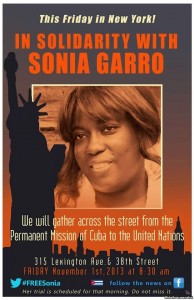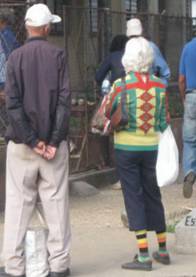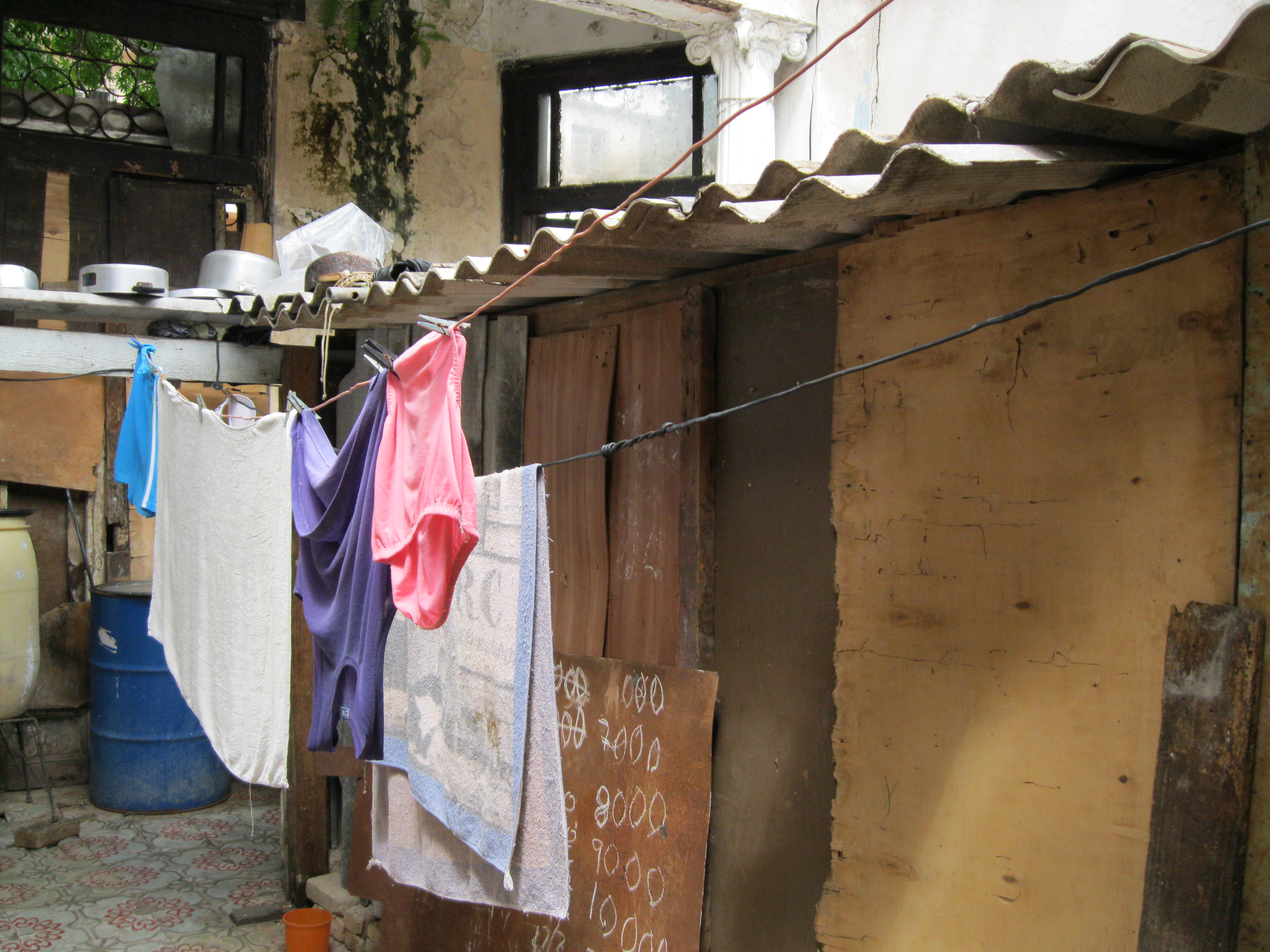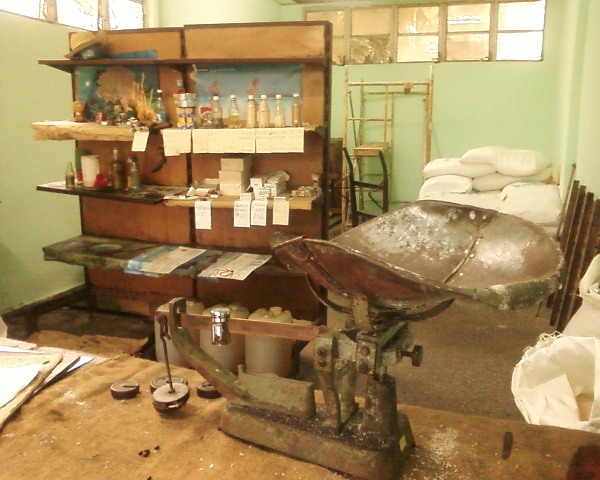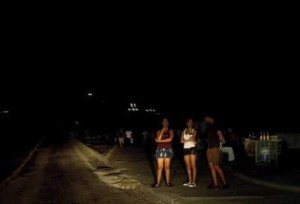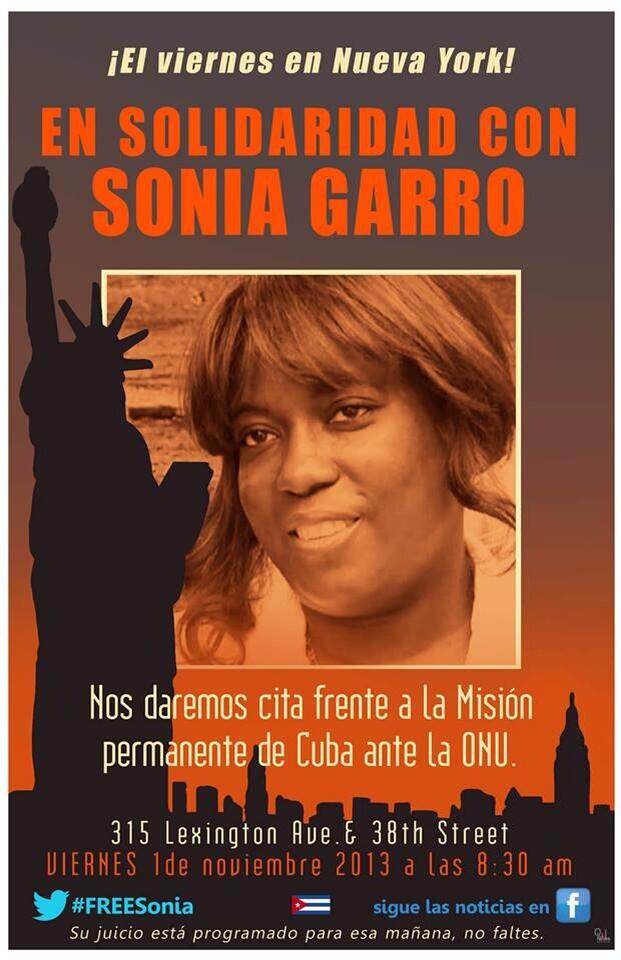Suddenly, more than thirty years after his dismissal, Luis Pavón, ex-president of the National Council of Culture during the euphemistically called “Five Grey Years,” reappeared in the public sphere on nothing more nor less than an entire programme on National Television dedicated to “his cultural impact on Cuban culture.”
Or is it someone else who irreversibly damaged the lives of the great and less great creators of Cuban culture, “defined as unacceptable” in one way or another? Who blocked the creation of many artistic performances and the dissemination of many works of literature and art in Cuba and abroad? Who forever deprived us of innumerable works because of the almost inevitable forced self-censorship that followed the abundantly fertile ’60s? Who filled an entire period with a dismal literary and artistic production now justifiably forgotten by those who championed it and bestowed awards upon it in days gone by? Who flooded us with the worst of the contemporary culture of the countries of Eastern Europe, not letting us know about the most creative and profound of them? Who in the short or long term built up the resentment and even caused the emigration of many of these creators who were not revolutionaries though they weren’t counterrevolutionaries, whose apprehension Fidel had tried to assuage in “Words to the Intellectuals”? [A book published in 1972 – Ed.] Who created and inculcated styles and neo-Zhadov cultural doctrines that took decades to eradicate, as they had come to be “normal.” [The Andrei Zhdanov cultural doctrine, developed in Soviet Russia in 1946, required all artists to conform to the Communist Party line in their work – Ed.] Perhaps we are really a country with such a short memory that we no longer remember the painful state to which our national cultural institutions were reduced by the efforts of the National Council of Culture, which was captured by Cuban humour at the time in a trio of sendups: “If you don’t listen to the Council, you won’t live to be old,” “There is no strength in numbers,” and “A wooden knife in the House of the Americas?”
It is true that Pavon was not always the main driver, but neither was he simply obeying orders. Because to this day an important mystery has not been explained or clarified: How many wrong decisions were taken “higher up” on the basis of information, interpretations and assessments of works, creators and events provided by Pavón and his associates of that time, on the basis of their diagnoses and predictions of supposedly serious threats and dangers originating from the cultural environment? continue reading
If we are going to talk about courageous cultural impacts in Cuban journalism, we need to mention ones like the man of letters who was Agustín Pí, who, in the same period, from his modest position on the newspaper Granma, helped many valuable people who were “out of favour” and ensured that the cultural pages of Granma were as open as possible at any given moment, and not turned into a wasteland of mediocrity and opportunism like so many other Cuban publications of that time.
In my article In media res publicas, I have talked about the responsibility of the politicians for the limitation of the critical role of the intellectual — above all in the years in which culture was managed by Luis Pavón — but this is only half the problem. The other half — worthy of another similar article — is the responsibility of the intellectuals: without the silence and passivity of almost all of them (not to mention the complicity and opportunism of more than a few) the “Five Grey Years” or the “Pavonato,” as many now call it, would not have been possible, or, at any rate, would not have been possible with such great destructiveness. With certain exceptions, among the intellectuals, the heterosexuals (including those who were not homophobic) ignored the fate of the gays; the whites (including those who were not racist), the problems of the blacks demanding vindication; the traditionalists, of the fate of the vanguardists; the atheists (including the tolerant ones), the vicissitudes of the Catholics and other believers; the pro-Soviets, the fate of the anti-Real Socialists and of the Marxists unconnected with the philosophy of Moscow, and so on. One wonders if this lack of individual moral responsibility could be repeated today among the Cuban intelligentsia.
We must, therefore, ask ourselves responsibly and without delay: Why at just this special moment in the history of our country when all our people are waiting to see what happens with the convalescence of the Commander in Chief, do we get this sudden and glorious media resurrection of Luis Pavón, with the generous iconographic unfolding of various old scenes with the the highest political leaders, and this just days after the no less sudden reappearance on the television of Jorge Serguera, who from the presidency of the ICRT [Cuban Institute of Radio and Televison] formed a perfect political cultural double-act with the CNC during the “Five Grey Years”?
“Happy is the man who finds out what causes things.”
Desiderio Navarro
January 6, 2007
Message from Desiderio Navarro to Reynaldo González
Dear Rey:
You can count on me for the collective development of this document, but it seems to me we should wait for other reactions like those of the three of us in the coming hours or days, which could reveal other angles to the problem and greatly enrich the document (and, incidentally, give us a measure of the sensibility and current attitudes of the intelligentsia with respect to this). I speak of “days” because I am taking into account that many people only have email access through their workplace, that is, starting on Monday.
Do you agree? Or do you think there are reasons to speed it up?
A hug
Desiderio
January 6, 2007
Another message from Desiderio Navarro
And, in addition to the one from Quesada, which I also find out about now, it was about two or three months ago, a whole programme on the Education Channel dedicated exclusively to extolling the crucial importance to Cuban culture of the National Congress of Education and Culture, but I saw it only a solitary swallow, outrageous but isolated. Now I see that that’s not so. Let’s talk about this proposal this evening (I’m leaving in the opposite direction now, from Los Naranjos to Havana). Even though the ICRT doesn’t accept it, they would be forced to drop the mask of “impartiality” as the nation’s mass media and make it very clear that they are abusing the State information tool to favor a cultural policy contrary to the Minister of Culture — one might rightfully say, if not with much quantitative accuracy, the cultural policy of a “tiny group.”
A hug,
Desiderio
January 8th, 2007
Message from Desiderio Navarro to Loly Estévez
Dear Loly:
I enclose the letter that, in response to one sent to me by Zenaida Romeu, I also sent to the members of the UNEAC Secretariat and other friends participating in the debate(s) arising from the three sudden reappearances, over a short period of time, of these three awful characters of Cuban cultural policy in the three programmes, without any mention of the Pavón years as president of the CNC in a programme on his “cultural impact.” As you will see, I speak there of the many objections on my part (shared by Arturo Arango) to the writing of the document. I was able to express them immediately in another meeting with the Secretariat, and can tell you that among them were found some that also figure in your Open Message to the UNEAC Secretariat:
We are not talking about a group” of intellectuals who are protesting:its relatively large size, and its lack of articulation for reasons of ties of friendship, class, aesthetic orientation, etc., does not permit us to call them a “group”, but rather “a large number of” intellectuals; I added that we are not looking at only “our most important” intellectuals, but also many others equally or less important who were also adding their voices and reasons;
... that the lack of any mention of the true specific cause of the intellectual outrage, or the sudden reappearance of these these three awful characters of Cuban cultural policy, after thirty years, in three television programs so close together, would make people, the millions in the street, wonder what happened on these programs that was so bad: an attempt at another live wedding? sexual indecency? corruption, bribery? a counterrevolutionary comment or joke? and so many other questions about possible attacks on the irreversible cultural policy of the Revolution, leaving the figure of these characters and specific political meaning of what happened in the shadows, and putting under the spotlight, without distinctions, the teams of the three programmes who, together or not, could have been complicit with external forces, or simply acting on directions from higher-ups (which is what people are inclined to believe in your case), or clumsy ignoramuses with initiative and ingenuity (which almost no one believes in the case of the “Impact” and “The Difference”).
What I could not fail to personally tell the President of the ICRT is that I do not believe in lack of control as an explanation of the three incidents, because I have more than one personal experience to base that on: as you will remember, when you kindly invited me to participate in the programme “Open Dialogue” in a discussion about mass culture–a theme on which I’ve written and spoken a lot – it was put to you as a condition that I would not participate in a live programme, rather my participation would be recorded three days in advance so that it could be reviewed, eventually approved by the management bodies and only afterwards mechanically juxtaposed with the live dialogue of the other three participants (Julio Garcia Espinosa, among them), which, of course, I indignantly refused.
Control is what there is more than enough of in the ICRT for anything except racism, homophobia, mocking people with physical defects, a Yankeephilic worship of the Oscars, Grammys, MTV etc. as perfect examples of global assessment of the arts; nostalgia for pre-revolutionary kitsch, the cult of ancestry and artistic lineages, New Age ideology in its various manifestations, worship of the millions earned in contracts, ticket sales or auctions, and media fame, as criteria of artistic success; militant defense of banality from the neo-liberal relativism and consumerism, and much much else.
But, just as in the ’70s being in the CNC did not mean sharing its political culture (I myself worked in it between dismissal and dismissal) I know that still today to be in the ICRT is not to approve all its policies or, if you prefer the euphemism, its lack of control.
Best wishes and my hopes for a successful stay in Gijon.
Desiderio Navarro
Message from Desiderio Navarro to Zenaida Romeu
Dear Zenaida:
I agree with you and thank you very much for having included me in the addressees of your letter.
Well, in the text of the Declaration is states that in the two meetings they tried to reach a consensus with some of the authors of protests (in fact, with the first ones, chronologically), which is totally and absolutely true. But neither I nor Artura Arango, nor other authors of protests participated in the subsequent formulation written in response, nor in its revision and final approval, which explains, that as expected, the only signer is the UNEAC Secretariat, and there are no signatures from the authors of protests, none of whom are members of the Secretariat. Unfortunately, the wording gives the impression that we are co-signatories of the document, despite the fact that several of us — I know this includes at least Arturo Arango and myself — have numerous objections to make on the text itself, whose formulation does not reflect the frankness, depth and firmness with which, with names and surnames, facts, dates and the corresponding descriptions, they debated these themes at those two meetings, meetings about which UNEAC, our UNEAC, can be very proud and would have nothing to hide.
As a member of the National Council of UNEAC and as a member of the ranks, I hope that they will correct what has happened.
With best wishes
Desiderio Navarro
P.S. I have just read this letter to Arturo Arango and he is totally in agreement with its contents.
Another message from Desiderio Navarro about the National Social Sciences Prize to Fernando Martínez Heredia.
Friends and comrades:
Arturo Arango’s recommendation to us to pay attention also to the National Social Sciences Prize awarded to Fernando Martínez Heredia, is so relevant that I followed it seven days before he formulated it in his message today, and thus, some days before the “cleaning of the biography” on television that worried us. I reproduce below the message I sent to Fernando the 31st of last month, as soon as I heard the good news. There, as you will see, as well as celebrating the intrinsic value of the work and struggles of Fernando, the prize is also seen as a sign of fruitful possibilities.
Sadly, the two events that Arturo juxtaposes in his message–Fernando’s Prize and Pavón’s Epiphany–have to be seen as antagonistic signs, and not contradictory, as they come from very diverse institutional and political-cultural sources and not a single source which would be contradicting itself loudly and thoughtlessly or trying naively to reconcile the irreconcilable.
And now, to share that bottle and those stubborn revolutionary dreams with Fernando.
A hug
Desiderio
7 January 2007
Dear Fernando:
I have just found out, by reading the magnificent text by Guanche [Cuban lawyer, writer, essayist, editor – ed.] in La Jiribilla [a magazine about Cuban culture – ed.] , that they have awarded you the National Social Sciences Prize. Honestly, is one of the few great joys I have had this year. In culture, and even more in cultural policy, justice is slow … Eppur si muove [“and yet it moves” – what Galileo is supposed to have muttered after being forced to recant by the Inquisition – ed.] and finally arrives. In the words of Althusser [French Marxist philosopher – ed.] from our youth, this award honours the Ideological Apparatus of the State [book by Althusser published 1969 – ed.] and opens up new hope in these times full of fruitful possibilities and insidious dangers.
Those who noticed the lexical and semantical similarity between the names of “Criterios” and “Pensamiento Crítico”, as being elements of the same lineage, weren’t mistaken. Those who saw, in the emergence of “Criterios” just seven months after the disappearance of “Pensamiento Crítico” a catalytic relationship, weren’t wrong either. In the history of the cultural struggles of the Cuban Revolution, both editorial efforts will be seen as a united desire to practice and preach Martí’s ethos of the grafting of the world into the core of our republics and the Marxist ethos of radical criticism. As I told Abel about three years ago at a meeting with Fowler and Reina María in his office, I haven’t lost hope that a Cuban journal of social thought will emerge that could be today, mutatis mutandis, what “Critical Thinking” was in its time, a magazine bearing the same name and directed by you. What an encouraging sign of health, strength and renewed ideological and cultural youth for a socialist revolution that would be! What news it would be of that critical and creative socialism which your essay advocates and prefigures with clarity and passion! Let me dream.
Dear Fernando, it is lucky to have the certainty that you will not be absorbed by any Canon and will make use of all the symbolic capital this award gives you on your continued efforts to do what Marx would really have done now.
A fraternal hug and I wish you and Esther a 2007 filled with new successes.
Desiderio
January 7, 2007
Another message from Desiderio Navarro
Comrades and friends, this is outrageous; not only does the ICRT not apologise, but rewards the director of the programme with an appearance in the headline midday programme, the same person whose work responsibility — if not policy intention — had been evident in recent meetings.
This is going to cause general indignation with unforseeable outcomes. Who is behind all this provocation? What microfraction, what little group? If there is no official condemnation, no-one is going to believe that it doesn’t have the blessing of the highest circles in the party. It is essential that we think up a deserved, but quick, response to this lack of respect for all those who last week met on two occasions in the UNEAC, starting with the Minister of Culture, and for all those who inside and outside Cuba have hoped for concrete results from that meeting and those who gave a vote of confidence to the Party and UNEAC.
A hug in these crucial moments for Cuban society.
Desiderio Navarro
Desiderio Navarro’s reply to Orlando Hernández
Dear Orlando
It seems to me there are some unfounded and unfair statements in the final paragraph of your letter to Arturo Arango, which I reproduce here:
I have just received Desiderio’s invitation for a conference in Opinions “The Five Grey Years: Revisiting the Term”, by Ambrosio Fornet as a part of the Cycle “The cultural policy of the Revolutionary period: Memory and reflection”, where you will also make an appearance. I think it’s excellent of course, but I am also worried that it will convert itself into an academic, “terminological”, etc. debate. Apart from this message from Desiderio, I have hardly received any new messages, only Amir’s text and the discussion between Rosa Ileana and Desiderio. And the El Pais article of course. So anyway, either there is nothing new to say, or it’s all been said? Hopefully, neither of these.
How can you say, not that you are worried that “this will convert”, “is going to be converted”, or “could be converted” into an academic “terminological” etc. debate, but, durative gerund and all, that you are worried that “it is converting itself” into such a debate? The last meeting in the UNEAC about this matter ended the day before yesterday at seven or eight at night and already yesterday at 11:10 at night I was sending around an email with an invitation for a whole cycle of conferences which had been organised in the 27 or 28 hours which had passed. I think very rarely has a Cuban cultural academic institution reacted so fast as Criterios has to the pressing needs of Cuban intellectual life. There are still some weeks to go before that conference, which would be the first, and you can already say that this is converting itself into an academic “terminological” debate? It looks as if you are rushing to prejudge it.
That said, is it damaging and unnecessary to have an academic debate about that period of Cuban cultural policy and its consequences, survival and relapses? Isn’t it perhaps the absence of investigations and academic events, of a whole academic literature, and not just essays about the topic, with its descriptions, analysis, interpretations, explanations and assessments, one of the principal causal factors which allow, among other things, that period and the phenomena of that period to subsequently survive or revive, remaining so unknown or unexplained for so many generations who didn’t live through it as young people or adults — as we have seen in many messages about those times?
On the other hand, who said that an academic debate implies the silencing of all non-academic debate about the same theme? In the first place, even if you wanted to, is there any way of silencing it? Since there isn’t any power, or technological media, to hold up the interchange and circulation of electronic messages which started a week ago. On the contrary: if the academic debate is serious, and not just pseudo-academic speculation, we need to listen carefully to all the empirical material floating around in those other discussions, all the ideas and experiences, the reflections and witnesses statements — which, in this case are very scarce — about everything that has been silenced or self-repressed for decades. And each and every one of us has the responsibility for continuing the discussion about these matters one way or another as long as there is a need to do so.
Ambrosio’s conference is called “The Five Grey Years: Revisiting the Period”. Do you believe that discussing the expression “Five Grey Years” is just a superfluous terminological debate? Those of us who have taken part in the last few days’ electronic correspondence, also myself, in “Medias Res Publica” (“Public Affairs Media”) seven years ago, and César López before me — as Ambrosio himself said to me the day before yesterday — have questioned the “Five Grey Years” as a name for the period and as a chronological limitation. Having said that, can we view that questioning of the expression — and others besides which have come up, such as that of Rine Leal (Cuban theatre writer and critic) and also what I am sure Ambrosio will talk and argue about on the 30th — as a useless debate with aseptic academic terminology, or as a crucial problem of historical periodisation about cultural policy, in which you have to take a position about everything that happened, with so many creative works and lives, for years before 1971 and also years after 1975? It’s enough to remember that that the last attempt to impose the most dogmatic form of Soviet-style socialist realism as official doctrine took place between 1980 and 1983, in the middle of a tense ideological-political struggle between cultural personalities and institutions, given the change in the correlation of forces in the prolonged journey from total control to jockeying for position. None of this is just a question of words.
Having said that, Dear Orlando, I believe Ambrosio’s conference, which is father to the little child which has run so far, will start up the debate in media res – or going from the Latin to the language of local people — in concrete terms, far from Byzantine complications and closely focused on the relationship between words and deeds, without academic-speak, but also without vulgarity. The rest depends on the public, which is to say, including you. On that basis I am very happy that Ambrosio has agreed to participate in this round of remembering and reflecting and, more than that, to start it going.
About UNEAC’s reply, to repeat, I am not pressuring you, and we will wait for the President of UNEAC’s document, which he will shortly issue, on what has happened.
Best wishes, brother
Desiderio
14 January 2007
Desiderio Navarro’s reply to Rosa Ileana Boudet
For those who don’t have acces to the internet, or the time, to do a search, I show below the text which I emailed in October 2002 to the e-publication Teatro en Miami, in reply to an unexpected atack by Rosa Ileana Boudet in their pages.
In the name of the Rose
Desiderio Navarro
What has happened is that Rosa Ileana Boudet, in the website www.teatroenmiami.com, now writes something which from 1994 up to her recent emigration to the USA, she has never expressed here in a public conference or in writing, although she had, among other platforms, the pages of the theatre magazine Conjunto — which she was the director of for years before her departure — in which to offer whatever opinion about whatever theatrical publication, whether Cuban or foreign.
In her keenness to go off with a great fanfare in praise — which she also never did here in writing, as far as I know — of the relationship between the also-emigrated Cuban Gloria María Martínez [ex-teacher at the Instituto Superior de Arte, now working at a university in Chile – ed.] and the work of Patrice Pavis [Professor of Theatre Studies in the University of Kent, in England – ed.], the sees it as necessary to create a dramatic counter-figure resident in Cuba who had put up obstacles in the way of the success of the elevated cultural objectives her heroine had been fighting for Prometheus-like here up to her departure. Below I cite a passage from her recent article entitled “Patrice Pavis: his own vision”, which you can see in the above-mentioned website.
In 1989 (Pavis) participates in the Second International Debate, held in Havana, at the invitation of Desiderio Navarro, who, years later, compiles and translates El Teatro and its reception, semiology, crossing of cultures and postmodernism, published in the same collection in the magazine of opinion and culture studies in 1994, and which is perhaps still to be found in the Rayuela de la Casa de las Américas bookshop. Navarro has gathered together the worries of the author about that “other” Latin American. Unfortunately a history of disputed translations — and some pedantry — made it more difficult, when it came out, for the book to bring us up to date on Pavis, and publishes texts unknown in our language relating to Le Théâtre au croisement des cultures (1990) or Theatre at the Crossroads of Culture, (1992) and Confluences. Cultural dialogues in contemporary performance (1992).
On the other hand, the contrast created between Gloria María’s “handcrafted editions”for the ISA students (mentioned just before by Rosa Ileana) and my anthology in the form of a book, tries to get across connotations of semantic opposition between the “fringe” and the “official”, as if Criterios, from some position of supreme political power (ludicrous and risible fantasy in the eyes of any knowledgeable Cuban in the last few decades), which would have obstructed Gloria María Martínez from publishing her translations in any of the Cuban editorials of that time (as evidenced by her publishing them in the Cuban magazines Conjunto and Tablas); as if the intermittent and hazardous history of Criterios had not precisely been a story — unfortunately in large measure of one person — of battles, defeats, frustrations and small victories against official dogmatism to open Cuba up to the wide variety of international theoretical thought.
Saying that, it happens that my anthology of the general theory of Pavis, El teatro and its reception includes, among others, exactly four of the five general theory texts from Pavis’ book “Theatre at the crossroads of culture”, namely,” “Toward a theory of culture and theatrical production,From the text to the scene: a difficult childhood”, “The classical heritage of postmodern theatre” and “Towards the special character of theatrical production: translation between gestures and between cultures”. (The fifth theory text, an analysis of theatrical theory in 1985, was not included because it was already obsolete in 1993 and Pavis himself in two 1990 footnotes asserts: “This chapter drives me toward a level of subjectivity which I would not want to deal with any more today”, and with respect to his own theories about the theory in the East, “I am pleased to see that in 1990 all of that is past history.”)
More than that, my anthology also includes Pavis’ postface article, “Towards a theory of interculturality in theatre?” from the book Confluences. The Dialogue of cultures in contemporary performance (of which Rosa Ileana seems unaware that it is not a theory book by Pavis, but his anthology of other peoples’ writing). Or that in my anthology I translated and published the “texts unknown in our language” which, according to Rosa, I prevented being published.
On the other hand, my anthology, finished at the beginning of 1994, included texts published by Pavis not only between 1982 and 1990 (up to his last book at that time) , but — thanks to the generosity and diligence of Pavis himself — also a text published by him in the autumn-winter of 1993 (“Towards a theory of the actor’s art”, Degrés, no.75-76), that’s to say up to only one month before the conclusion of my work as a translator and editor and only six months before the appearance of the printed edition (July 1994). Never in Cuba has the appearance of a foreign book of theory followed so closely in time after the initial publication of the work in its original language — and what’s more in the worst publishing moment of the so-called “Special Period”. And that was how I obstructed “the book updating us on Pavis”.
I am not surprised at the “men’s probable ingratitude” toward the only person in Cuba who, committing a good part of his investigative time and his income, has translated from twelve languages and published more than 300 texts of foreign theory over more that 30 years — among those authors Pavis is only one among more than 100 — in order that his Cuban colleagues could have access to examples of the best of worldwide theoretical thought which would otherwise have remained inaccessible materially and/or linguistically to many of them. I have pretty well got used to that demonstrable ingratitude on the part of many men — and women.
Neither do I feel surprised by the meanness with which that same person who, trusting in the nonexistent marketing and limited international access to the editions of Criterios, this same person who more than once rejected an article of mine when she (co)directed the Revolution and Culture magazine, as a trusted and diligent assistant to Luis Pavón (President of the National Culture Council) in questions of policy relating to cultural information during the period which some continue to insist on calling the “Five Grey Years”, now, from Miami reverts to the clumsiest lies in order to throw mud at my work and my intellectual ethics, in her hasty baptism in the waters of Theatre in Miami, Meeting in the Network and other similar diaspora publications. As far as I’m concerned, she can continue doing her “theatre in Miami” with every kind of true or false Glorias of the diaspora; there will be a good friend who recommends that she write for herself a script whose local villains can’t reply demonstrating easily the untruthfulness of her slurs, either because they are dead, or they are decrepit.
Oh dear, Gertrude, a Rosa is not always a rose …!
Los Naranjos, October 24th 2002
Appendix: As a demonstration of the kinds of discrepancies in translations — inadmissable above all in a work on theory — whose challenge by me Rosa Ileana, there and now, dares to call “pedantry” with a view to rescuing her heroine, I show below the footnote to page II of the introduction to my anthology. Not even the Spanish subtitles to North American films reach such heights!
- Here is a small example, taken at random, of a translation of “La herencia clásico del teatro postmoderno” (The classical legacy of postmodern theatre”) published in Apuntes, Santiago de Chile, 1-101, spring, 1990, pp. 117.127:
- It says”Vitez wants to reinvent tradition, removing all trace of it from herself. (en s’en démarquant) It should say “Vitez wants to reinvent tradition, distancing herself from it” (“se démarquer”: “to distance yourself from something”): from here on the dictionary definitions are from Petit Robert)
- It says: “opening it (the text and the mise en scene) to a series of trails which are self-contradictory, they cut back [se recoupent]” It should say “opening it to a series of trails which are self-contradictory, which happen to meet” (recouper, pronoun., “Intersecar. Fig. to meet, agreeing”).
- It says: The work vigorously denies the feeling is respectful, by this logic with [est tenue par cette logique à] the same coherence and the same unity as those which should, at another time, evoke this feeling.
- It should say: “The work that rigorously denies the sense is obligated, by this logic, to have the same coherence and same unity that formerly should have evoked the sense.” (être tenu à: “estar obligado a (una acción)”.
- It says: “The postmodernism, conceived as a practice of destruction (déconstruction)”
- It should say “The postmodernism, conceived as a practice of deconstruction
- It says: “This record is effected … by the recovery (des reprises) of sentences”
- It should say: “This record is effected … by repetitions of sentences (reprise: “action of saying again, repeating)
- It says: “The music of Stockhausen like the theatre of Wilson is not in fact notable or respectable”
- It should say: “The music of Stockhausen, like the theatre of Wilson, is not, in effect susceptible to notation, or repeatable.”
- In the same translation of the text where these examples are taken from, you can find more than one case of conversion from negation to affirmation – “Even the theatre of the absurd belongs to modernism (and [not] to postmodernism)”; “The ’post’ – of ’postmodern’ means (ne signifie pas) a movement of comeback, of flashback” — of neologisms due to ignorance of the original meaning — “Jacobismo” for “Jacobinismo; “anamorfis” for “anamorfosis” — big differences.
- “The man doesn’t now have anything of the individual written in the history or historical which regulates all the problems”, where what is missing is after the word “or”, and in place of the word “historical”, the phrase: “historicised by a radical scenic treatment, by a sociohistorical explanation” — all of them attributable to mistakes if they don’t repeat themselves in other documents carrying the same signature (for example, “From text to scene: a difficult labour” and other things published in Conjunto y Tablas, Havana).
Another chance oversight by Cuban television
Dear friends:
In today’s programme Midday on TV (Tuesday February 6), intended to celebrate the Camagüey Culture Conference which is taking place now, dedicated a segment, put together by the journalist Aimée A. Margoz, to presenting the principal cultural historical achievements of Camagüey, which started, as it should, with the Mirror of Patience, from which it went on to Gertrudis Gómez de Avellaneda and Carlos J. Finlay, but, in a fatal leap (maybe there was a blackout?) they omitted, and left within the category “and others”, ever mention of none other than the twentieth century Camagüeyan poet who is our National Poet, our greatest social communist poet, Nicolás Guillén — and what’s more founder-president of our Cuban Union of Writers and Artists until his death. Those of us who are still waiting for Camagüey to totally rid itself its prerevolutionary and Pavonist prejudices, in its local “Giordano-Atiénzar” form, and finally start to be proud of the novels and essays of the internationally celebrated emigré-mullato-gay Severo Sarduy, see ourselves kilometres away from that horizon, with this step backwards, which, even more inconceivably and impardonably, ends up with Nicolás Guillén, the great revolutionary poet of Cuba and the world, left outside the cultural historical record of our city, province and nation.
With best wishes
Desiderio Navarro
6 February 2007
Desiderio Navarro’s reply to the message signed “Betty”
One of the most pathetic things for me these days has been seeing how people who have been silent and uncritical all their lives in the public sphere — in the assembly, on paper, by email — after carefully waiting a week or two to see “what happens to me” after my initial critical letter, and after my invitation to the debate on taboo topics, they join in the discussion only in order to ask me in a modest way, not to say this or that — always something they themselves have never done or said in the Cuban public sphere. I am not only talking about the political prostitutes who are now abroad, who never wrote hardly a controversial line about anything in Cuba in the “public media” (2001) or, decades earlier, “Literary criticism: also a moral question” (1981), and who never gained any reputation as a controversial person in any congress, assembly or debate they attended between the 70s and now, paying the resulting biographical and intellectual price.
You interpolate me in the following terms: “in the same way that you didn’t accept Pavón on the TV, neither should you concede now to them choosing the quorum on your behalf.” You don’t have to be a semiotic genius to see how the tendentious ellipsis works in that sentence: who is the subject of the action of “choosing”? Who are the “them” that you don’t name? By not naming them you are creating what is known as an area of doubt which can be filled by the reader with subject like “the bureaucrats”, “the Power”, “the closed circle”, “the elite”, “the apparatus”, etc. depending on the individual person’s suspicions, experiences or expectations. Or, let’s say, a symmetrical variant, going off in the opposite direction, the much criticised “Mystery Syndrome”. No less a part of the Orwellian “newspeak” is the implication: the verb “to cede” has two very different meanings: transitive verb – “give”, “transfer, pass to another thing action or law” — and the other, as an intransitive verb — “give in”, “subject oneself to” (DRAE). The verb “to cede” in its transitive form is an action that the subject may carry out of his own accord and volition (like giving up a seat to a pregnant lady in the bus). Nevertheless, you use the verb in its intransitive form: “concede to”, that’s to say, to not offer much resistance to, to give in to the will of another, capitulate, not resist pressure, or force (like to give in to the threats of an aggressor), sneaking in the impression that there are newly unspecified pressures on the part of “them”.
Now, Betty, although I have not “conceded” that they “choose the quorum,” for me, at all times I have made it clear that I have ceded the right to” choose the quorum.” As I explained in messages widely disseminated by email, after having got the Che Guevara Room and quadrupled the capacity for the public, and having soon seen that those interested in attending exceeded even this capacity, I decided I had to assure the participation of Cuban writers, artists and intellectuals in general, but it turned out even the number of these interested in attended vastly exceeded the capacity, and that’s when I refused to play the role of omnipotent czar singlehandedly deciding who may enter and who may not, and I passed this responsibility — and this is explained again here, one more time, to the “them” of the message whom I informed them of my decision — to the numerous cultural institutions of Cuban writers, artists and intellecturals who are members or workers. It is therefore up to these organizations to question or not any decision of the bodies that they themselves have chosen in the institutions of which they themselves have decided to join voluntarily, including the criteria for making those decisions. What, even so, I did do was insist that they do not allow the diversion of invitations in favour of secretaries or officials; so as not to leave off the lists important cultural figures, simply because they don’t have important positions in UNEAC or elsewhere, and they were taken into account, especially the critics and researchers of the cultural sector, which is the natural and usual public for Criterios, cultural theory center/publisher. I am sure that if I had not done so, indignant letters would now be raining down upon me, not for having made supposed “concessions,” but for having acted in the same autocratic and undemocratic way that I have criticized in such and such institutions or agencies and which you also seem opposed to.
The insinuation, or rather the accusation in advance that the audience will receive “an edited version (as has always happened) of reality” is more than offensive, in the case of Criterios, and I won’t waste time in answering it, because to any honest intellectual, Cuban or foreigner, who knows the work of Desiderio Navarro and Criterios for 35 years, it will be disgusting and unacceptable. Not to mention how offensive it will be to the speakers themselves. In any case, you also — though you haven’t requested them as have, already, more than four hundred people — will receive the texts of the lectures, if only so you can scrutinize them looking for some sloppy trail of an eraser and editorial scissors.
Desiderio Navarro
Translated by GH
28 January 2007
 We Cuban women invented alternative cosmetics: cream deodorant mixed with grated color chalk to make eye shadow, shoe polish as eye mascara, yellow soap with oxygenated water to dye the hair lighter or carbon extracted from old batteries to make it darker, detergent instead of shampoo and “Alusil,” an antacid I think, was used as gel for the hair. My first makeup came from a professional water-color set. For an age in which image is everything, any resource was welcomed.
We Cuban women invented alternative cosmetics: cream deodorant mixed with grated color chalk to make eye shadow, shoe polish as eye mascara, yellow soap with oxygenated water to dye the hair lighter or carbon extracted from old batteries to make it darker, detergent instead of shampoo and “Alusil,” an antacid I think, was used as gel for the hair. My first makeup came from a professional water-color set. For an age in which image is everything, any resource was welcomed.


